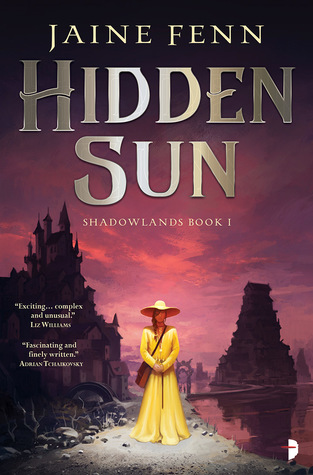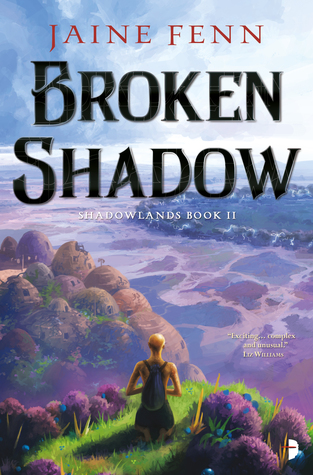Interview with Jaine Fenn (BROKEN SHADOW)
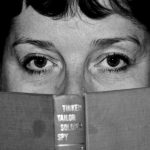 Jaine Fenn has written a number of intriguing and imaginative novels across the spectrum of Science Fiction and Fantasy. She has won the BSFA Award for Shorter Fiction. Her debut novel Principle Of Angels (2008) was published by Gollancz and kicked off the Hidden Empire space opera series. It was followed by Consorts Of Heaven (2009), Guardians Of Paradise (2010), Bringer Of Light (2011) and Queen Of Nowhere (2013). Last year her novel Hidden Sun was released by Angry Robot, a compelling science fantasy in a wonderfully alien world and the first novel in the Shadowlands duology. The concluding volume, Broken Shadow, is out from Angry Robot now.
Jaine Fenn has written a number of intriguing and imaginative novels across the spectrum of Science Fiction and Fantasy. She has won the BSFA Award for Shorter Fiction. Her debut novel Principle Of Angels (2008) was published by Gollancz and kicked off the Hidden Empire space opera series. It was followed by Consorts Of Heaven (2009), Guardians Of Paradise (2010), Bringer Of Light (2011) and Queen Of Nowhere (2013). Last year her novel Hidden Sun was released by Angry Robot, a compelling science fantasy in a wonderfully alien world and the first novel in the Shadowlands duology. The concluding volume, Broken Shadow, is out from Angry Robot now.
Jaine Fenn was kind enough to speak to The Fantasy Hive over email about her latest novel and her wonderful writing.
Broken Shadow, your latest novel and sequel to last year’s Hidden Sun, is out now with Angry Robot. Would you be able to tell us a bit about it?
The Shadowlands books are set on a hot, bright, alien world where humanity long ago divided into the skykin, who modified themselves to survive in this peculiar and inimical place, and the shadowkin, who have recreated a recognisably earth-like culture in isolated pockets of shade. The main characters come from both sides of this divide but aren’t quite at home in either, either by choice, circumstances or both. In Broken Shadow, the consequences of their earlier choices and actions are coming home to roost… and then the world itself turns against them.
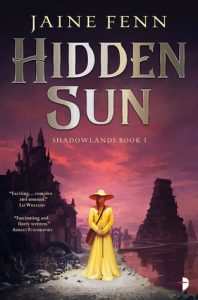 The protagonist of the two novels, Rhia Harlyn, is a woman who practices science in a culture where this is not encouraged. Were you inspired by historical examples of women practising science in restrictive patriarchal cultures?
The protagonist of the two novels, Rhia Harlyn, is a woman who practices science in a culture where this is not encouraged. Were you inspired by historical examples of women practising science in restrictive patriarchal cultures?
Obviously I tip my hat to Mary Shelley here, as although she wasn’t a practising scientist she had an excellent grasp of the scientific wisdom of her day, and she used that to drive her fiction. Also *deep breath* Hildegard von Bingen, Ada Lovelace, Mary Anning (whose pioneering work on fossils was disregarded for reasons of both gender and class), Marie Curie (often mentioned in the same breath as a male relative), Caroline Herschel (ditto) and more recently Lise Meitner (who discovered nuclear fission), Rachel Carson (author of Silent Spring) and of course Jocelyn Bell Burnell.
By book two, Rhia is being accused of heresy for her discoveries about cosmology, echoing the conflict between the church and early astronomers like Copernicus and Galileo. What did you find resonant about writing about the conflict between religious orthodoxy and science today?
So much. Like Rhia I’ve always thought that there are objective truths which, if demonstrated clearly, will be accepted by all reasonable people. But some time in the last few years my view of the truth has changed: just as history is written by the victors, truth is apparently decided by those who control the narrative. And when you add faith into the mix objective truth loses whatever traction it may have had.
Having said that there are plenty of people of faith who have contributed to science; there still are, of course. But just like the border between skyland and shadowlands in these books, when the science and religion meet head-on, there will be turbulence.
The world of the Shadowlands is a fascinatingly strange one, split between the skylands and the shadowlands. What are the challenges and rewards of writing in such an unusual setting?
I’ve effectively created two worlds, and placed one inside the other, so there’s twice as much world-building work to do right there! Actually I loved the contrasts, not just between skyland and shadowland, but between the individual shadowlands, as their isolation means each one has its own distinct culture. I especially enjoyed showing different parts of the world through the eyes of characters who came from elsewhere. I would have liked to show more of the alien weirdness of the skyland’s ecology and biology, but it was hard to do so without info-dumping.
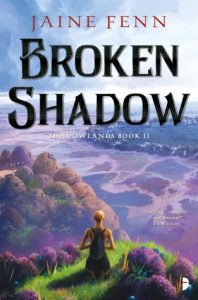 You’ve described the Shadowlands books as science fantasy, a term that harks back to the work of Michael Moorcock in the 1960s or even C. L. Moore and L. Sprague de Camp in the 1940s and 50s. What made engaging with this genre exciting?
You’ve described the Shadowlands books as science fantasy, a term that harks back to the work of Michael Moorcock in the 1960s or even C. L. Moore and L. Sprague de Camp in the 1940s and 50s. What made engaging with this genre exciting?
I think of science fantasy as the best of two halves of the genre. Also, I started out reading fantasy when I was growing up, possibly subconsciously influenced by the idea that science fiction was ‘for boys’. As a result, when I began to catch up with my SF reading, I was coming at it older, and from a different perspective. I think this has fed into what I write.
The Shadowlands novels form a duology rather than a trilogy or a longer sequence. Was writing in this format a challenge?
Although I originally thought this was a trilogy, once I’d decided it was only two books that actually made writing the story easier. With no ‘difficult middle book’ I could condense the action, and build the pace more quickly across the story. This did mean that the first draft of Broken Shadow came in somewhat over-long, leading to some fairly brutal editing.
Your other novels form the Hidden Empire series, part of a seven-thousand year future history. Can you tell us a bit about that?
I’d categorise the Hidden Empire books as space opera rather than science fantasy, though they include one classic science fantasy trope – psi powers – and I am messing with mythology as well as cosmology, deep in the background. The idea of placing stories in a future history is shamelessly lifted from Larry Niven, who was one of the first SF writers I read. I love the continuity and depth you get setting a story in a future history. Plus, it indulges my inner megalomaniac.
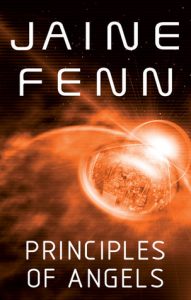 Your debut novel Principles of Angels focuses on the floating city of Khesh, which has a privileged respectable topside and a disadvantaged and dispossessed downside, and a democracy run by assassination. Can you talk about the political ideas behind the novel?
Your debut novel Principles of Angels focuses on the floating city of Khesh, which has a privileged respectable topside and a disadvantaged and dispossessed downside, and a democracy run by assassination. Can you talk about the political ideas behind the novel?
You know, the idea of a democracy by assassination just gets more and more appealing by the day; it’s the only way to make politicians truly accountable. More seriously, I wanted to explore what life would be like in a society with no laws, where the most respected members were state-appointed assassins. Cool but grim, as it turns out.
The second Hidden Empires novel Consorts of Heaven uses a more Fantasy-like beginning to explore a society controlled by religion. Is this an important theme for you?
You’ve sussed me. I was indeed going back to my roots with Consorts, which has more than a whiff of fantasy about it. As for the religious aspect, I wanted to explore a theocracy with demonstrable miracles and effective social control but which is, in the end, based on a provable lie.
The third Hidden Empires novel Guardians of Paradise brings the characters from the previous two novels together. Was it fun having them interact?
Oh yes. I’d written the initial chapters, where the main characters meet up, in my head a long time before I committed them to paper. We’ve got three people whose backgrounds couldn’t be more different united by a common cause no one else believes in, so their interactions were always going to be interesting.
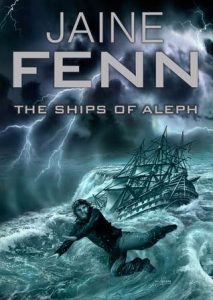 As well as the main sequence of Hidden Empire novels, you’ve also written Downside Girls and The Ships of Aleph, which aren’t part of the main narrative but flesh out the worlds. Are these different to write than the novels which progress the main story arc? Do you enjoy the chance to go back and fill in the gaps?
As well as the main sequence of Hidden Empire novels, you’ve also written Downside Girls and The Ships of Aleph, which aren’t part of the main narrative but flesh out the worlds. Are these different to write than the novels which progress the main story arc? Do you enjoy the chance to go back and fill in the gaps?
I started my career writing short stories, and I still love them, both as sketches for longer work – the fifth Hidden Empire book, Queen of Nowhere started as a short story – and to fill in the blanks. I just wish I had the time to pick up and develop more of these peripheral ideas!
Both the Hidden Empire novels and the Shadowlands books feature a strong awareness of the class divisions and conflicts between the people with power and privilege and those without. How do science fiction and fantasy help us to explore and understand these ideas?
I’ve heard it said that you can place any SF book in the decade it was written, regardless of when it is set. This is partly down to the science and tech aspects of course, but also, I think, a matter of attitudes and themes. Ironically, the reason our genre is ideal for exploring current issues is because we place our stories outside of the world we live in, giving us an objectivity that allows us to consider our own situation dispassionately.
You’ve also written The Martian Job, an SF heist novella for Newcon Press. How did writing that differ from writing your two series?
I love heist movies, so I jumped at the chance to write an SF-flavoured heist. I found this little story remarkably easy to write too, which is odd because in the end it may also be the nearest I’ve got to writing hard science fiction.
You’ve written a number of short stories. How do you find the differences between writing a multi-volume series, a standalone novel and a short story? Do you always know which format an idea will take when you start writing it?
Short fiction requires a slightly different skillset to novels, when it comes to the actual wrangling of the words; the prose needs to be tighter and more disciplined, and the pacing more condensed. But some ideas just work best in short form. Some people dismiss the old adage that science fiction is the literature of ideas, but I’ve found that when a story starts from a ‘neat idea’ in isolation – as opposed to an idea that comes bundled with a character, a world, or both – then that might indicate it needs to go into a short story. If it acquires too many subsidiary ideas, or a large cast of characters, during development, I can always change my mind.
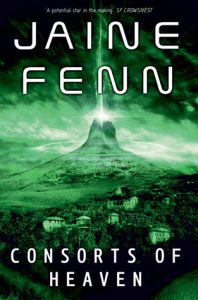 As well as novels and short stories, you’ve written for video games in the Halo and Total War franchise. What challenges does this new narrative medium bring?
As well as novels and short stories, you’ve written for video games in the Halo and Total War franchise. What challenges does this new narrative medium bring?
Brevity, mainly. Sorry, I should probably expand on that, shouldn’t I? Most of my games-writing is script work, writing the lines you hear characters speak as you play the game. As there are a lot of such lines in a game, each one voiced by a professional actor, I’m often required to use the minimum number of words possible to give a clear instruction which is also ‘flavoursome’, i.e. which is how this character, in this situation, would speak.
Your work frequently features characters who refuse to conform to the gender roles expected of them by their society, from Taro the male prostitute in the Hidden Empire series to Rhia’s interest in science in the Shadowlands duology. What draws you to characters like these?
Good question. Insofar as it’s a conscious decision I think I do this because I know I’ll find these characters inherently more interesting, and be able to provide them with greater challenges, if they’re trying to make their way outside the cultural norms for the society they live in.
Rather than relying on exposition, you tend to drop readers into unfamiliar worlds via the viewpoint characters and the reader discovers about the context of the world as the story continues. Do you find this approach more rewarding than the alternative?
Having taught creative writing for several years, I lost count of the number of times I told my students ‘Show Don’t Tell’ and this seems to have made me hyper-aware of practising what I preach. Combine this with the habitual brevity I‘ve acquired from games-writing, and it’s become second nature to strip back description to what matters to the viewpoint character at that moment. It is harder to write, but also more rewarding. I hope that’s true for readers too; as a reader, I appreciate it when an author credits me with the ability to work things out for myself.
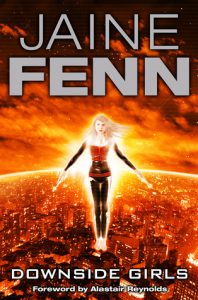 Your novels tend to mix ideas and tropes from both science fiction and fantasy. Do you see genre more as a toolbox than a strict guide?
Your novels tend to mix ideas and tropes from both science fiction and fantasy. Do you see genre more as a toolbox than a strict guide?
It’s so tricky to define terms, even the overall name for our genre… sci-fi? spec. fiction? scientifiction? I favour the abbreviation SFF, as in ‘science fiction and fantasy’. I have a lot of respect for, and enjoy reading, hard SF writers like Alistair Reynolds, but in telling my tales I like not feeling constrained by, say, the laws of physics. I think that as long as there is consistency in the world you create, and as long as you’re familiar with what’s been done before in the genre, you’ve got a viable story.
What’s next for Jaine Fenn?
Right now I’m deep into the scripts for the latest Total War game, which is set in a fascinating historical period… about which I can say nothing, yet. I also hope to be writing more stories in the Warhammer ‘Age of Sigmar’ universe… but again, can’t say more just yet. When it comes to my own fiction, I’ve got a backlog of short stories I want to write, when I get time and I’m accumulating notes for a possible ‘first contact’ novel, as that’s not something I’ve tackled before.
Thank you Jaine Fenn for speaking with us!
Jaine Fenn’s latest novel, BROKEN SHADOW, is out now from Angry Robot.

